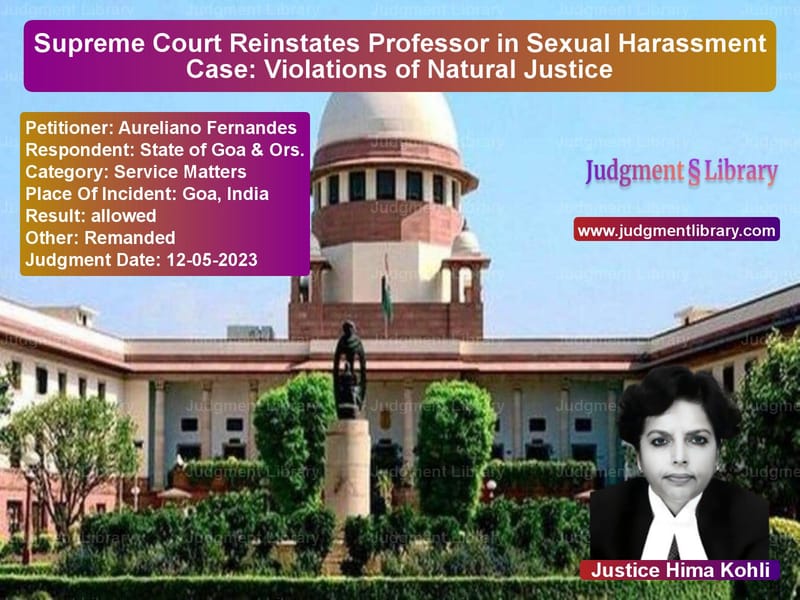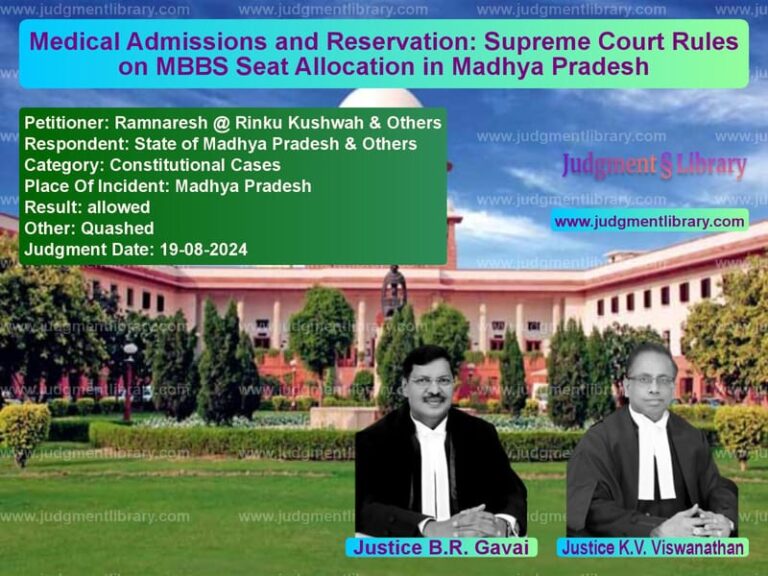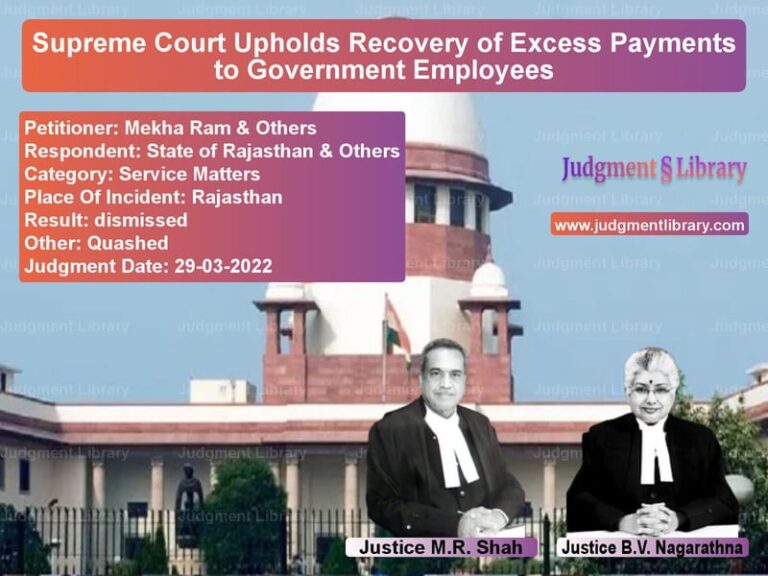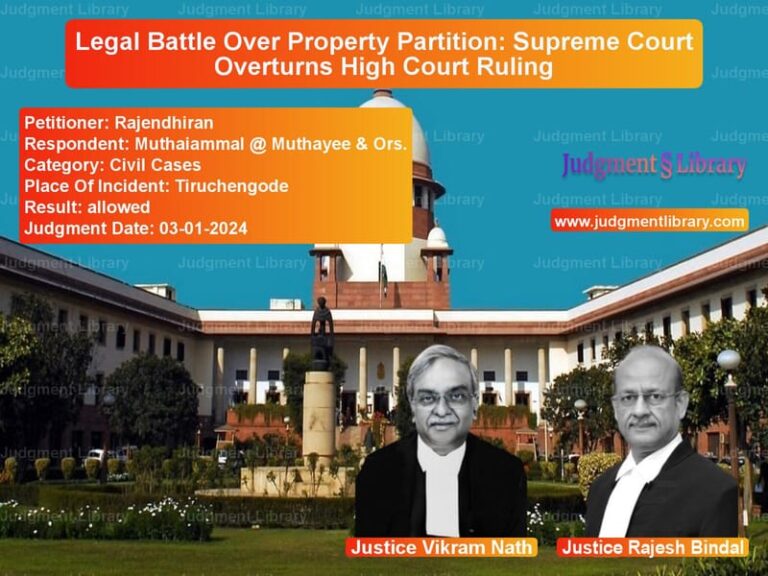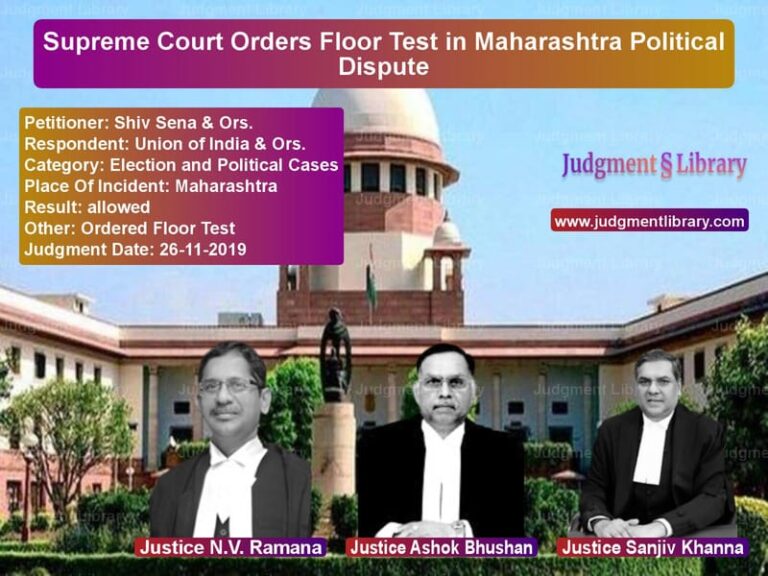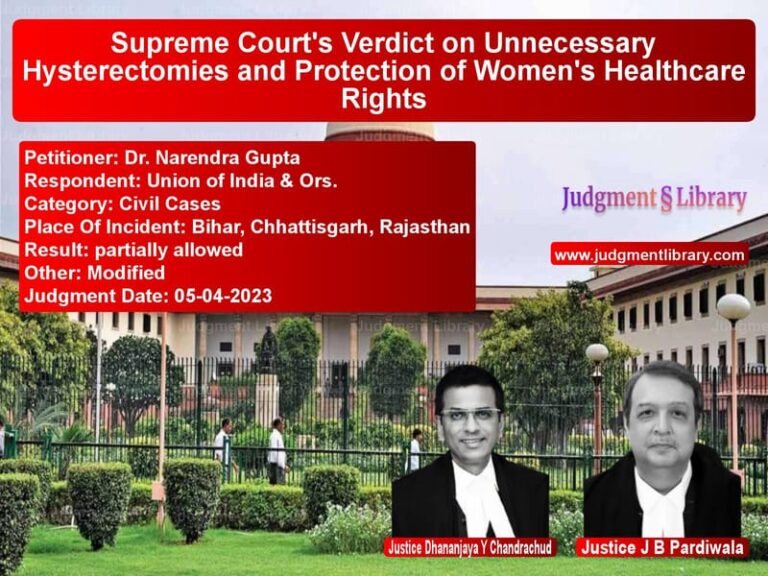Supreme Court Reinstates Professor in Sexual Harassment Case: Violations of Natural Justice
The Supreme Court of India recently overturned the dismissal of Professor Aureliano Fernandes from Goa University, citing serious violations of natural justice in the inquiry process. The ruling emphasized that the disciplinary proceedings against him did not adhere to fair hearing principles, leading to an unfair dismissal.
Background of the Case
Professor Aureliano Fernandes was accused of sexual harassment by multiple students of Goa University. The allegations led to an inquiry by the Internal Complaints Committee (ICC), which found him guilty. Based on the committee’s findings, the Executive Council of Goa University dismissed him from service and disqualified him from future employment.
Professor Fernandes challenged his dismissal before the Bombay High Court (Goa Bench), which upheld the University’s decision. He then appealed to the Supreme Court, arguing that the inquiry process was unfair and violated principles of natural justice.
Arguments Presented
Petitioner’s (Professor Fernandes) Arguments
Senior Advocate Bishwajeet Bhattacharya, representing the petitioner, argued:
- The disciplinary proceedings were concluded in undue haste without giving him adequate opportunity to present his defense.
- The committee did not follow due process under the Central Civil Services (Classification, Control, and Appeal) Rules, 1965 (CCS (CCA) Rules).
- He was not allowed to cross-examine witnesses, making the process inherently biased.
- The composition of the committee was flawed, as some members were his subordinates, leading to potential bias.
- The committee’s findings were treated as a final disciplinary report without following the established inquiry process.
Respondents’ (Goa University) Arguments
The university, represented by Advocate Ruchira Gupta, countered:
- The committee followed due process, giving the professor sufficient opportunity to respond to the charges.
- The inquiry was conducted as per the Vishaka Guidelines and the Sexual Harassment of Women at Workplace (Prevention, Prohibition, and Redressal) Act, 2013 (PoSH Act).
- The professor avoided hearings by citing medical reasons, delaying the proceedings.
- Seventeen students submitted complaints against him, demonstrating a pattern of misconduct.
- The university acted in the best interest of students and upheld the integrity of academic spaces.
Supreme Court’s Judgment
The Supreme Court ruled in favor of Professor Fernandes, stating that the inquiry process suffered from multiple deficiencies. Key observations included:
- “The proceedings were rushed through without affording the appellant a fair opportunity to defend himself.”
- “The principles of natural justice were not followed as per the prescribed rules.”
- “While the complaints were serious, justice must not only be done but must also be seen to be done.”
- “The University’s Executive Council failed to apply its mind independently and merely accepted the committee’s findings.”
- “Fairness in disciplinary proceedings is crucial, especially when major penalties like dismissal are imposed.”
Implications of the Judgment
This ruling sets an important precedent for sexual harassment inquiries in workplaces and academic institutions. The key takeaways include:
- Due Process in Sexual Harassment Cases: Even in cases involving serious allegations, inquiries must strictly adhere to legal procedures.
- Right to Fair Hearing: Accused individuals must be given full opportunities to cross-examine witnesses and present their defense.
- Role of Internal Committees: While ICCs play a crucial role, their findings should not substitute a full disciplinary inquiry unless proper procedures are followed.
- Judicial Oversight: Courts will intervene if disciplinary proceedings are found to be arbitrary or unfair.
Conclusion
The Supreme Court’s decision to reinstate Professor Fernandes underscores the necessity of upholding procedural fairness in all disciplinary actions, particularly those concerning sexual harassment allegations. While protecting victims is of paramount importance, justice demands that accused individuals are given a fair trial, ensuring impartiality and adherence to natural justice principles.
With this ruling, institutions are reminded to conduct internal inquiries with due diligence, balancing the rights of complainants and the accused. Moving forward, it is expected that universities and workplaces will strengthen their internal procedures to ensure compliance with both legal and ethical standards in sexual harassment cases.
Petitioner Name: Aureliano Fernandes.Respondent Name: State of Goa & Ors..Judgment By: Justice Hima Kohli.Place Of Incident: Goa, India.Judgment Date: 12-05-2023.
Don’t miss out on the full details! Download the complete judgment in PDF format below and gain valuable insights instantly!
Download Judgment: aureliano-fernandes-vs-state-of-goa-&-ors.-supreme-court-of-india-judgment-dated-12-05-2023.pdf
Directly Download Judgment: Directly download this Judgment
See all petitions in Workplace Harassment
See all petitions in Disciplinary Proceedings
See all petitions in Termination Cases
See all petitions in Public Sector Employees
See all petitions in Recruitment Policies
See all petitions in Judgment by Hima Kohli
See all petitions in allowed
See all petitions in Remanded
See all petitions in supreme court of India judgments May 2023
See all petitions in 2023 judgments
See all posts in Service Matters Category
See all allowed petitions in Service Matters Category
See all Dismissed petitions in Service Matters Category
See all partially allowed petitions in Service Matters Category

